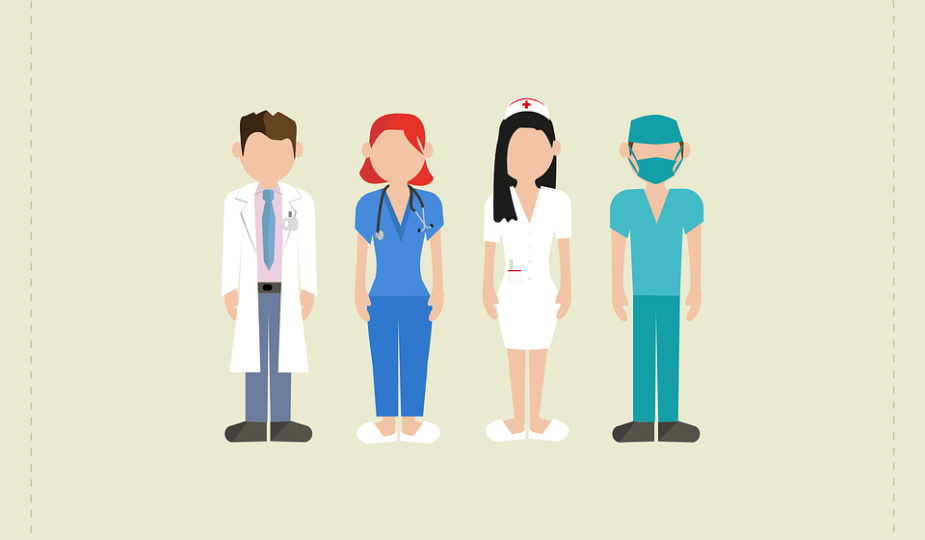
Nurses vs. Doctors: Understanding Varying Job Responsibilities
Some fifty years ago, the differences in job responsibilities of a nurse and a doctor were oceans apart. While doctors were considered the gods of a medical team, nurses obediently followed their orders. But fortunately, times are changing, and like most industries, the healthcare sector has also revolutionized. Although a physician remains at the top of the hierarchy when making medical decisions, certified nurses with postgraduate qualifications are almost at par.
If you are looking to build a career in the medical field, there are plenty of job positions you can opt for. However, having several options may seem daunting as these jobs often appear very similar. Understanding each role’s differences can help you choose the best-suited career path to meet your interests and needs.
So, to help you make an informed decision, we have outlined how doctors and nurses differ, how their roles and responsibilities vary, and opportunities that exist for both professions.
How do nurses differ from doctors?
Registered Nurses often wear multiple hats daily to care for their patients. Nurses are licensed healthcare professionals who can practice independently or work under a physician, surgeon, or dentist. Although the primary role is to advocate for individual patients, nurses with advanced degrees can also hold management positions. With more opportunities to further their professional career, these qualifications can make them suitable for better, high-paying jobs. Luckily, schools that offer accredited online MSN programs offer you a chance to enroll for advanced degrees without compromising on your current job or personal engagements.
On the other hand, a doctor is a medical professional primarily responsible for diagnosing and treating various ailments. Doctors prescribe treatments to restore their patient’s physical or mental health by analyzing and examining them. They typically spend a long time in medical school because after earning a bachelor’s degree, they must complete an internship, followed by a residency.
Although both professionals hold immense importance in running the healthcare system, their differences lie in philosophical focuses, career paths, schooling, specialties, regulations, and licenses.
What roles do nurses and doctors play in healthcare?
As critical healthcare team members, nurses must play several roles during their shifts. Since they are often the first medical professionals a patient encounters, they play a crucial role in ensuring patients receive proper care and comfort.
Here are some of the essential roles nurses play in their routine work.

-
An Educator
One of the most significant roles of a nurse is being an educator. They teach patients ways to manage their symptoms and keep them from worsening. They are also responsible for training community members to recognize common health problems and mitigate potential risk and exposure factors. While doctors may offer patients available treatment options, a nurse explains how each option varies to make an informed decision.
Nurses educate patients and family members on developing concrete skills like dressing wounds and identifying worsening disease symptoms.
-
A Counselor
Since nurses often provide bedside care to their patients, they have the privilege of building relationships that other healthcare professionals rarely get to experience. As a nurse, tending to your patients day in and day out can make you accustomed to their needs, worries, and concerns. Many patients and their attendants fear upcoming surgeries and treatment regimens because they do not know much about them. By listening to their concerns and answering relevant questions, you can counsel them to choose the best strategy for themselves. Simple acts of kindness and empathy are often overlooked, but these go a long way in providing patients with emotional support.
-
An Advocate
Nurses with years of experience are more knowledgeable of the inner workings of healthcare systems and how they impact patients. Therefore they may take on management roles to bring change and advocate for patient rights. Furthermore, nurses’ time with their patients allows them to get a good grasp of their illnesses. They are usually more aware of a patient’s medical condition than the attending physician and may step in when recommending care plans to doctors.
Nurses know every small detail about their patients since they are the ones that are interacting with them on a 24×7 basis. For example, a doctor might not be aware of the fact that their patients have trouble swallowing pills. However, nurses might know about this since the patients are more comfortable in discussing these topics with them. The nurses in turn have no problem in using Gloup swallowing gel to help the patients take the pills without any difficulties.
Unlike the roles of a nurse, the role of a physician is more related to the healthcare setting they work in. They may act as medical experts, managers, or scholars.
What are the responsibilities of nurses and doctors?
Contrary to popular belief, a nurse does more than take vital signs and administer drugs to a patient. Nurses can work in several healthcare settings, from private clinics to general hospitals and rehabilitation centers. They carry out various duties to ensure their parents receive the ultimate care and safely recover. These include:
- monitoring vital signs of the patient
- keeping track of medications
- updating health records
- dressing and treating wounds
- administering injections and drawing blood for tests
- conducting routine assessments
- advocating for the wellbeing of the patient
- providing support to patient and family
- collaborating with the medical team to plan for patient care
- educating patients on how to manage an illness
Since doctors are responsible for diagnosing and treating their patients, they too have various responsibilities. Along with saving lives, they perform the following day-to-day functions:
- examining patient’s reports to make a diagnosis
- prescribing suitable treatment
- performing invasive procedures like surgeries
- collaborating with other health professionals to provide effective patient care
- training new interns and residents
- researching and reviewing new processes
- taking accurate notes as legal records
- referring them to other health providers
- staying updated on the latest medical research

What are the options for career advancement for nurses and doctors?
Advanced professional degrees allow nurses to take roles beyond a patient’s primary care. Those who decide to focus their education in specialized fields can advance their career in specific job roles better suited for them.
With your MSN degree, here are some health professions you may want to pursue.
- Family Nurse Practitioner
- Nursing Informatics Specialist
- Clinical Nurse Researcher
- Forensic Nurse Consultant
- Psychiatric Nurse Practitioner
- Nurse Educator
- Legal Nurse Consultant
Doctors can also specialize in a particular field of their interest based on which they can pursue their career as a:
- Cardiologist
- Neurologist
- Psychologist
- Anesthesiologist
- Pathologist
- Radiologist
Those who have experienced physician burnout and no longer wish to practice medicine in a healthcare setting can pursue alternate careers. These include aesthetics, teaching, coaching, research, health policy, and medical technology.
Conclusion
In the past few years, the importance of healthcare workers has grown exponentially. With advancements in medicine and modern technology, the expected lifespan for an average individual has increased. With people expected to live longer, health issues related to advancing age are also growing. So, while a healthcare career can provide you with excellent opportunities, be sure to choose the profession that aligns with your interests and future goals.









